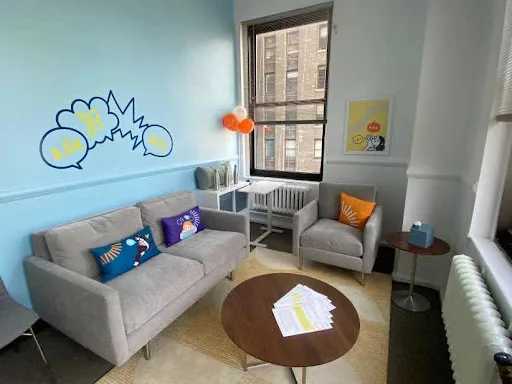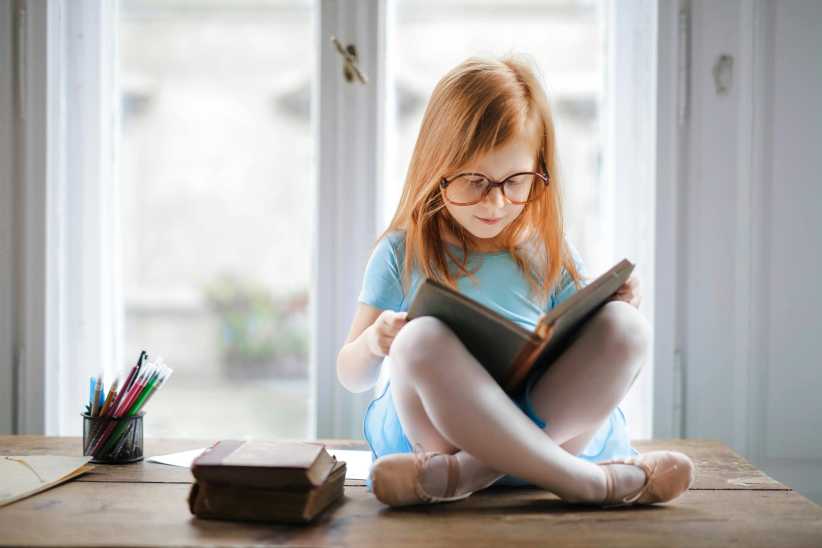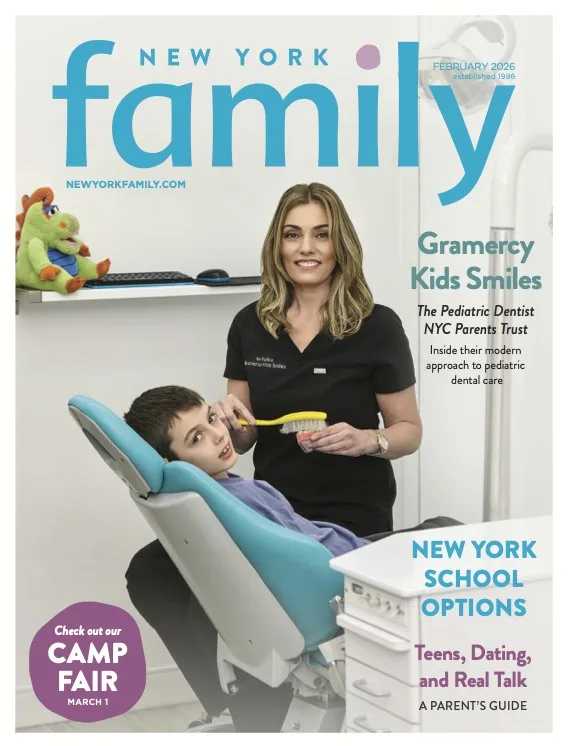
Brightline Rethinks How New York Children Receive Mental Health Care
With its new state-of-the-art facility, Brightline offers exceptional mental health services.
Nestled in the bustling intersection of Court St., near the Jay St. Metrotech train station in Brooklyn, lies a slice of peace. The brick building contains multiple floors, but if you head to suite 808, you will be greeted by the newest mental health facility focused on children. The sky-blue walls are complemented by colorful accents, from artwork to sculptures, designed to bring a hint of dopamine to your visit. The suite is home to Brightline’s first brick-and-mortar location in Brooklyn, aiming to give a hands-on, face-to-face, and more personal experience to children and teens across the borough who receive mental health care.
Psst… Check Out Mental Health Podcasts for Parents 2025
A Fresh Approach
Navigating mental health in children, teenagers, and yourself as a parent can be an extremely slippery slope. When co-founder and CEO Naomi Allen’s son started displaying symptoms of a mental health crisis, she found herself struggling to find the correct care. On a long wait list and simply looking for resources to help her child, Brightline was born.
“We like to say that we haven’t walked in your shoes, but we have a well-worn pair just like them. Meaning that we understand each family is unique, but we also have a deep understanding of the challenges parents are facing — because we’ve been there,” Allen reminisces.
Brightline was originally founded in 2019 as an online-only company, and opened its first brick-and-mortar location in Brooklyn this spring. The facility offers pediatric and teen mental health care and parental mental support to families and kids up to age 18. While most mental health practices have transitioned entirely online following the COVID-19 pandemic, Brightline has done the opposite, opening physical offices to strengthen the connection and better understand its clients.
“While we’ve had great clinical outcomes with this model, we understand that parents want in-person services again, and we know we can close that care gap and help more families with a hybrid approach,” Allen explains.”Our clinical care plans are purposefully built with the whole family in mind, knowing that when one struggles, there can be a profound ripple effect on everyone.”
Offering parental services shows a significant shift in the mental health industry. A study conducted by the National Library of Medicine found that 12.8 million parents are diagnosed with and struggle with mental illness. Additionally, parents who have children on the spectrum experience more stress compared to other groups of parents. The relationship between parenting and autism often results in higher levels of depression, anxiety, and stress-related health issues.
Understanding Your Child
Taking your child to a mental health facility can be a scary experience. No parent wants to see or think about their child in emotional or mental distress, but the truth of the matter is that it happens, and it happens more often than we would like to believe.
According to the New York City Department of Health, in 2021, 38% of NYC high school students reported feeling so sad or hopeless that they gave up their usual activities, a significant increase from 27% in 2011, according to NYC.gov. A recent survey also found that 48% of teenagers reported feeling depressive symptoms ranging from mild to severe.
“Teenagers have so much happening right now, within their own bodies, minds, and in the world around them. Back in 2021, kids were slowly coming into a new post-COVID world. The isolation they faced during that time, along with the lack of social interaction through in-person activities (and the reliance on digital connection) could have a continued emotional impact on many of them,” Allen says.
Teenagers are more likely to experience depression, with the percentage topping out at around 20% experiencing it by the age of 17, with even higher numbers for teenage girls. However, recognizing these signs isn’t always so cut and dry. Teenagers and children can be very good at hiding their emotions, but symptoms of mental distress will show up in various ways. According to Allen, mental health crises can appear in the form of a sudden slip in school performance (i.e., low grades), or if their typically social child suddenly becomes withdrawn.
“Think about whether the behaviors, moods, or mental state you’ve noticed have been happening for a while or more sporadically. But keep in mind — you don’t have to “know” if it’s a phase or something more serious to talk about it or seek support or care advice,” Allen advises. “If you’re questioning it or curious about it, take that instinct seriously and check in with a mental health professional (the same way you would if you had a physical health concern).”
Brightline and Allen remind everyone that the stigma around mental health needs to change, and it starts at home.
“Talking about mental health concerns doesn’t cause them. When parents listen with an empathetic ear and give their teens a safe space to open up, it can deepen trust and create connection.”
Psst… Check Out 14 Kids’ Books to Read For Mental Health Awareness Month














